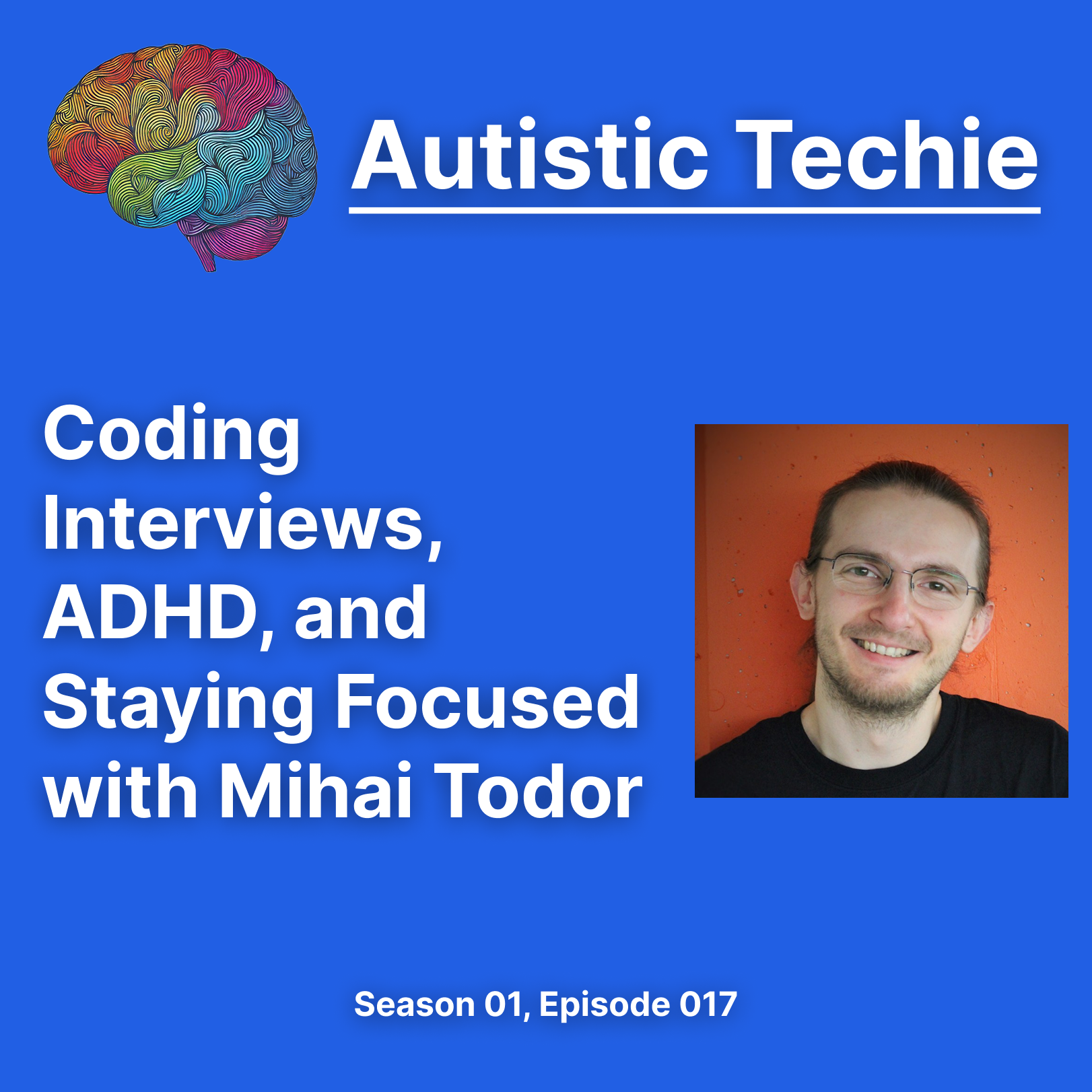
Summary
Coding interviews are one of the most difficult things a neurodivergent software engineer can go through. Whiteboarding, coding challenges, and explaining technical concepts are tough for everyone, especially for those whose don't express ideas in quite the same way as everyone else. Mihai Todor has gone through hundreds of coding interviews, and he has some incredible insights to share! We talked about self regulating during interviews, what kind of tech works and what doesn't, and setting specific boundaries for the kinds of interviews he can do.
Connect with Mihai
https://www.linkedin.com/in/mtodor
https://bsky.app/profile/mihaitodor.bsky.social
Takeaways
Mihai has over 18 years of experience in software engineering.
He specializes in data streaming and backend systems.
Neurodiversity means different approaches to work and learning.
Cultural perceptions of neurodiversity can vary significantly.
Mihai values freedom in his work to explore new technologies.
He has faced challenges in traditional job interview processes.
ADHD can drive creativity but also create stress in work environments.
Mihai prefers offline coding assignments over live coding tests.
He emphasizes the importance of product alignment in his work.
Mihai actively participates in neurodiversity-focused tech communities.
Chapters
00:00 Introduction to Mihai Todor and His Journey
02:05 Understanding Neurodiversity and Personal Experiences
04:07 Cultural Perspectives on Neurodiversity
05:58 Navigating Career Challenges and Job Experiences
08:38 Balancing Passion Projects with Career Obligations
10:29 The Importance of Product Alignment in Tech
13:01 The Impact of ADHD on Career Development
15:27 Interview Experiences and Challenges
19:36 Coping with Interview Stress and Anxiety
22:35 Behavioral Interviews and Personal Reflections
25:31 Conclusion and Future Connections